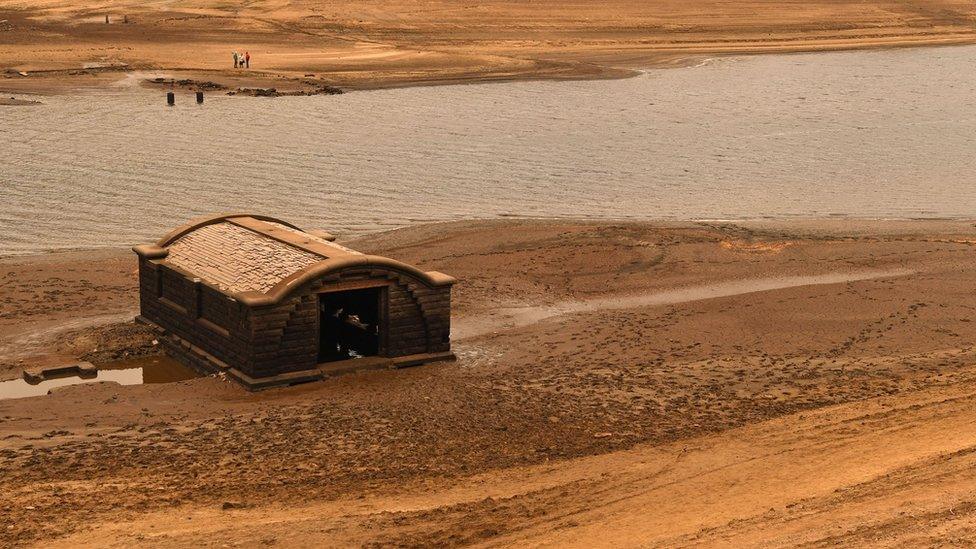Why does Ladybower Reservoir in Derbyshire have plug holes?
- Published
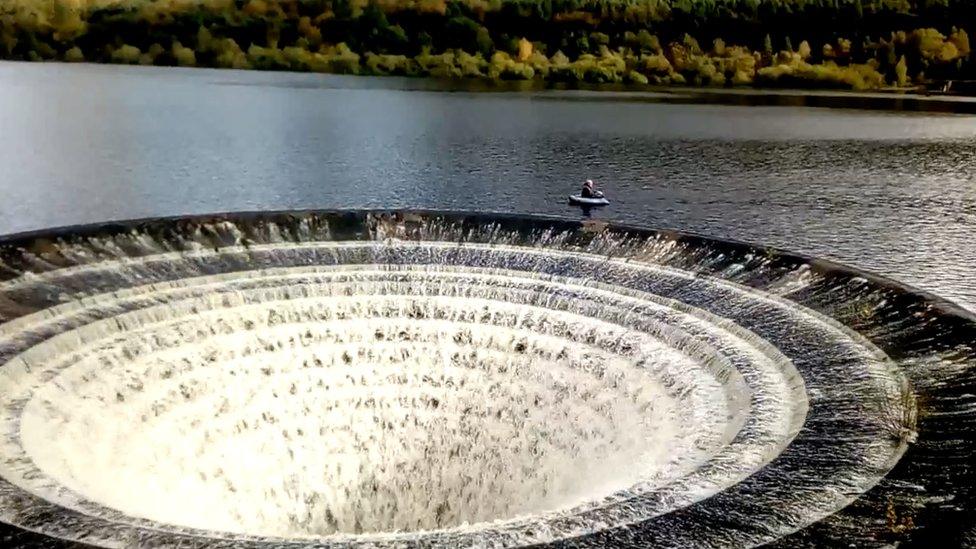
The plug hole does not lead to Australia
Two fishermen caused a stir earlier this week when they were filmed sailing perilously close to a giant "plug hole" at Ladybower Reservoir in Derbyshire.
Severn Trent Water, which owns the reservoir, said the pair had put themselves in a serious danger and warned others not to copy them.
Ladybower Reservoir has two of these dramatic-looking "plug holes" but exactly what do they do?
They are not magical portals
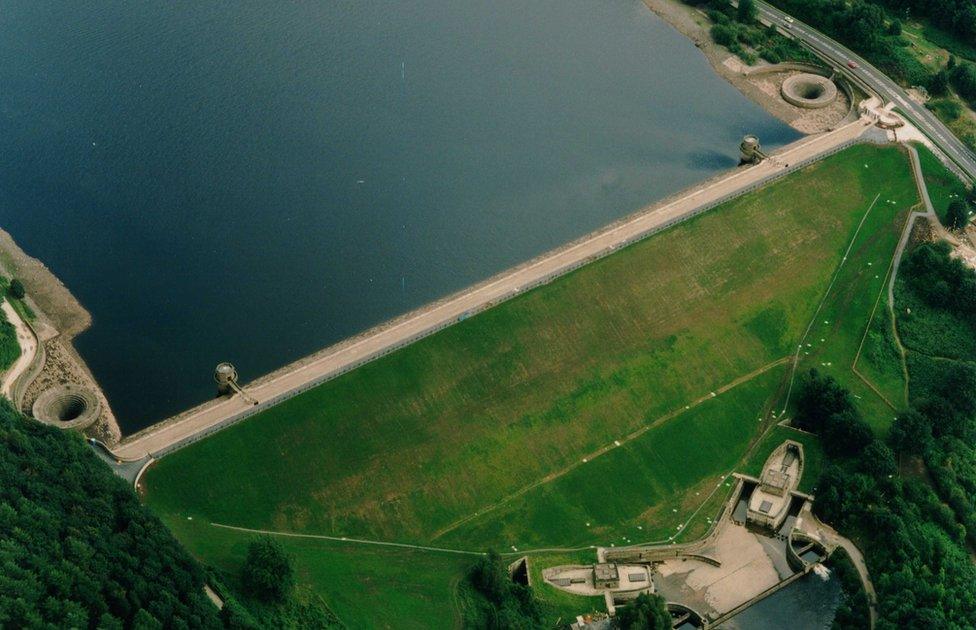
The plug holes sit at opposite sides of Ladybower Reservoir
One wag on social media joked the plug holes provided a direct route to Australia while another person said they were told as a child there was a giant mincing machine at the bottom.
Inevitably the truth is more mundane.
Technically known as shaft spillways but affectionately known as plug holes, the drains were designed to regulate water levels in the reservoir by letting out water when the reservoir became full after prolonged wet spells.
The water is carried away down tunnels through the dam to the River Derwent downstream.
Each plug hole has a diameter of 24m (78ft) and the drop from the exit point to the floor of the tunnel below is 20m (66ft).
These shaft spillways have been nicknamed bellmouth or morning glory - after the flower - spillways.
Importantly, they look pretty cool too.
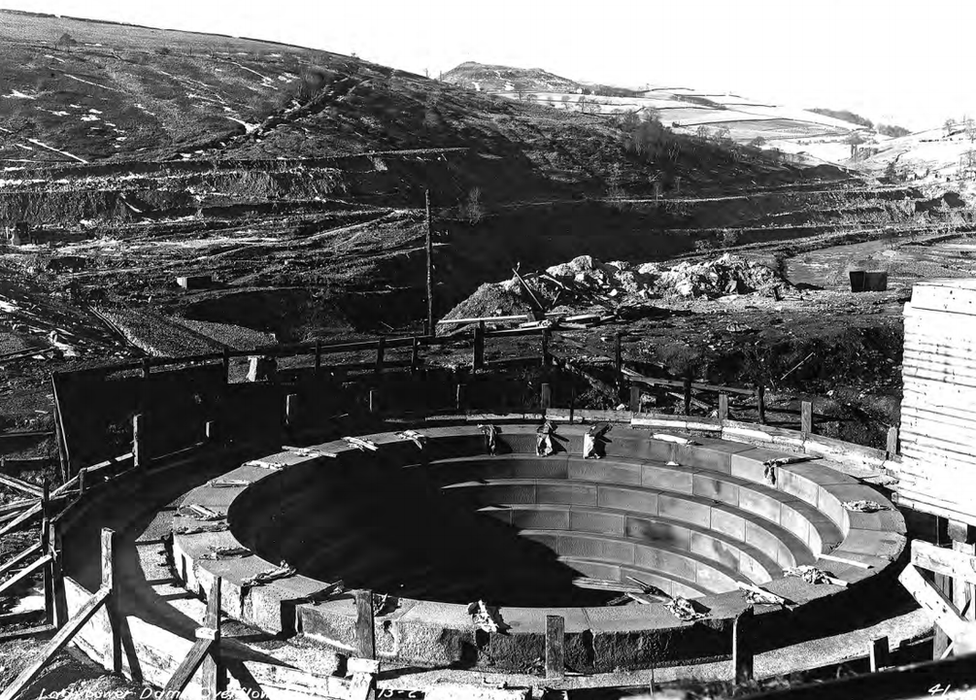
The plug holes are more than 70 years old
What would happen if you fell in?
Following the water down the hole would not end well, according to Severn Trent Water.
"If somebody fell in, they would very seriously hurt themselves," a spokeswoman said.
"They would also find themselves stuck because access to the river has a grille so they would need a professional rescue team to get them out."
The anglers were filmed a few metres from a plug hole
Do they do anything else?
Good question. These plug holes aren't just about getting rid of excess water - they also create energy.
Severn Trent Water has proudly stated that water released from the reservoir is used to create hydroelectric energy to power its water and sewage treatment works.
You might think the overflows would be the perfect place for this to happen, but the firm said it actually takes place inside the dam, with excess water from pipework passing through two large turbines.
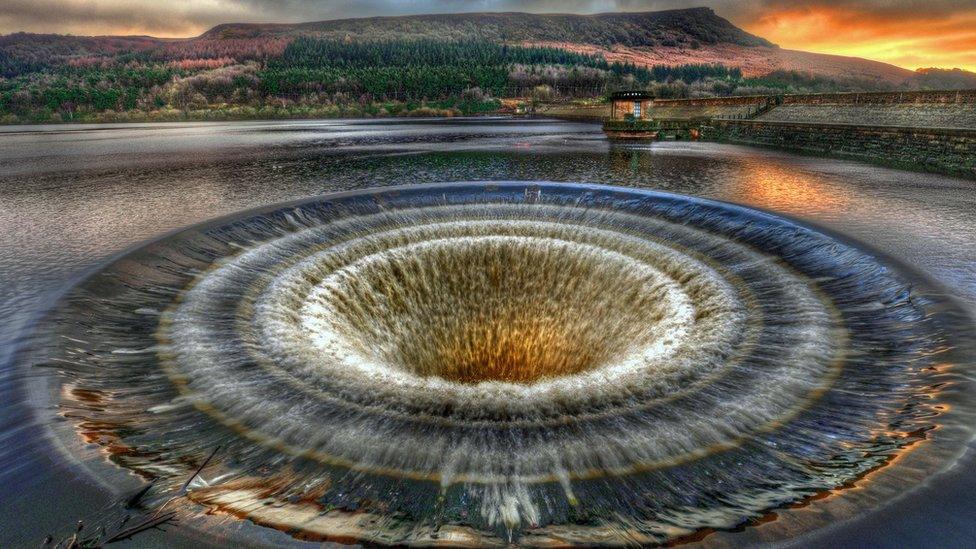
The plug holes are popular with photographers
Could we see a photo looking up from inside the plug hole?
Absolutely, here you go.
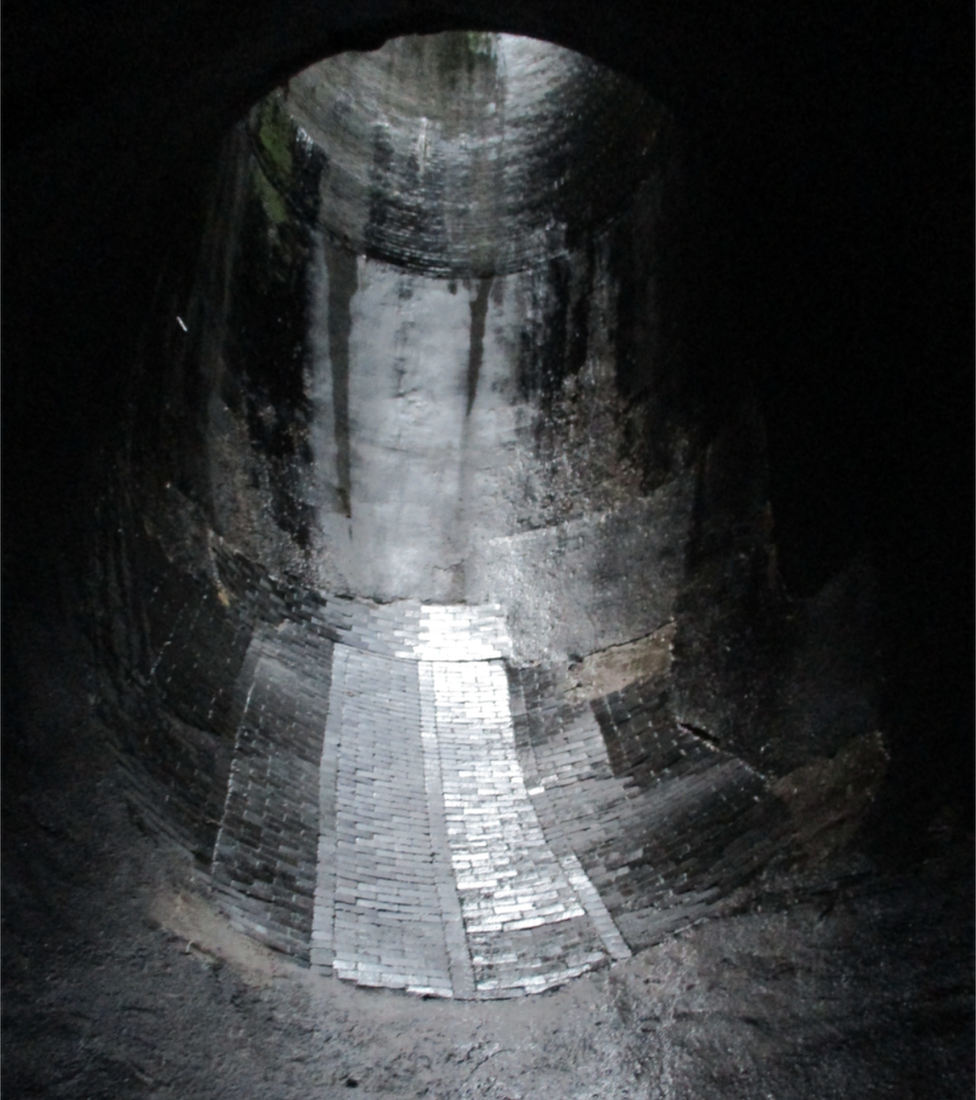
You don't want to fall down here
Do other reservoirs have plug holes?
Yes they do - but not many. Next time you're enjoying a visit to the Brecon Beacons in Wales, look out for one at Llyn Pontsticill Reservoir.
You'll find another near the Monticello Dam in Lake Berryessa, Napa County, California. Its nickname is "The Glory Hole" if you need to ask a local for directions.
Allow Instagram content?
This article contains content provided by Instagram. We ask for your permission before anything is loaded, as they may be using cookies and other technologies. You may want to read Meta’s Instagram cookie policy, external and privacy policy, external before accepting. To view this content choose ‘accept and continue’.
How do other reservoirs get rid of excess water?
A more common sight than shaft spillways are overflow spillways, which carry water down part or all of the dam.
It was damage to the spillway at Toddbrook Reservoir in Whaley Bridge, Derbyshire, that saw more than 1,500 residents ordered to leave their homes over fears the dam would collapse and flood the town.
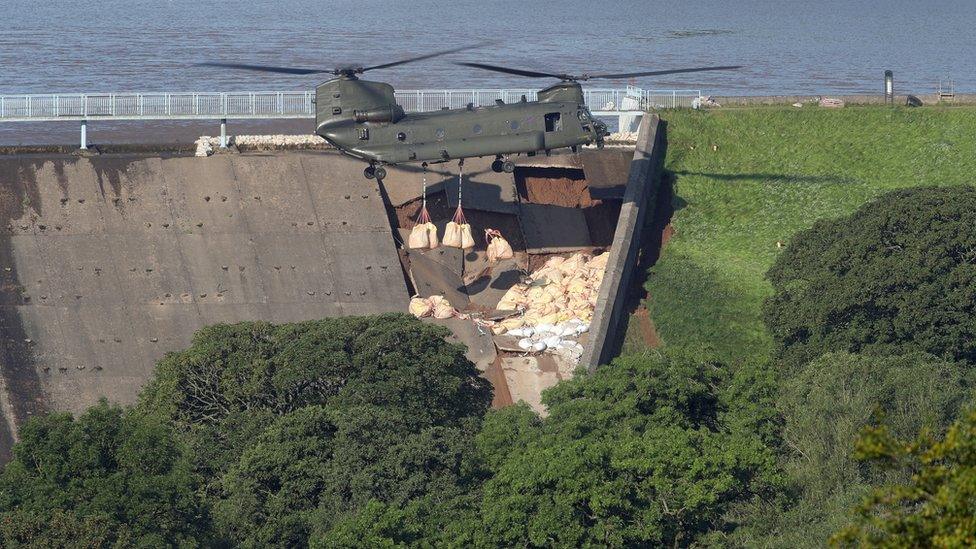
Damage to Toddbrook Reservoir's spillway prompted a mass evacuation
Other reservoirs employ side channel spillways, which as the name suggests channel the water away from the side of the dam, or outlet towers, which mechanically pump water from the reservoir.
You'll find one of these at Rutland Water along with a limnological tower - used to study aquatic ecosystems within the reservoir.

Follow BBC East Midlands on Facebook, external, Twitter, external, or Instagram, external. Send your story ideas to eastmidsnews@bbc.co.uk, external.
- Published21 October 2019
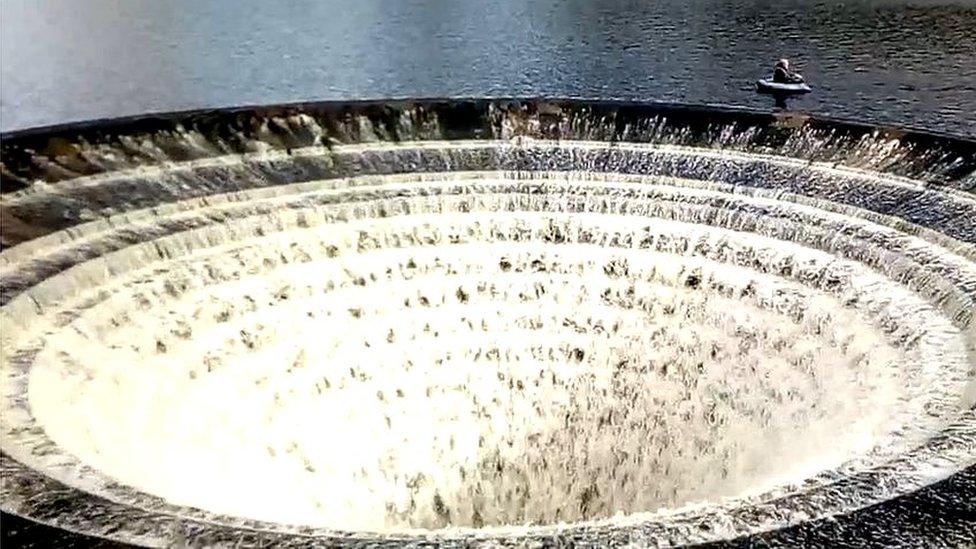
- Published17 November 2018
